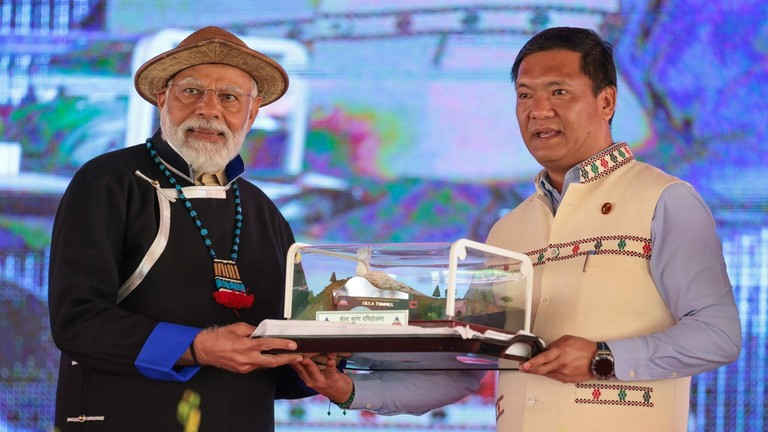
Beijing earlier condemned PM Narendra Modi’s visit to Arunachal Pradesh amid tensions at the border.
The region of Arunachal Pradesh will always remain part of India and the people will continue to benefit from the country’s infrastructure and development projects, New Delhi declared on Tuesday. The statement comes after Beijing slammed Prime Minister Narendra Modi’s recent visit to the region, which is claimed by both India and China.
Modi visited Arunachal Pradesh, which China calls Zangnan, on March 9 to inaugurate the Sela Pass – a New Delhi-built tunnel that could hasten a military deployment to forward areas near the contested border in the event of a conflict. Chinese Foreign Ministry spokesperson Wang Wenbin, responding to a question on Modi’s visit, claimed that the region is “Chinese territory.”
“The Chinese government has never recognized the so-called Arunachal Pradesh illegally set up by India, and firmly opposes it,” Wenbin told Beijing Daily. “The China-India boundary question has yet to be solved,” he said, adding that India has “no right” to develop Zangnan.
A few days later, Chinese Defense Ministry spokesperson Zhang Xiaogang also suggested that India’s actions “are contrary to the efforts of both sides to ease the border situation.”
Sela Tunnel’s inauguration is a moment of great pride for us. When I had laid the foundation stone for it a few years ago, some people were unsure that this project will be completed soon because the work culture that prevailed for several decades normalised delays. But, the NDA… pic.twitter.com/O2JyvI1lhQ
— Narendra Modi (@narendramodi) March 9, 2024
India’s External Affairs Ministry said on Tuesday that it had noted the “absurd claims” regarding the territory. “Repeating baseless arguments… does not lend such claims any validity,” the ministry stated. This is the second statement by New Delhi on the matter – the first, dated March 12, noted that “Indian leaders visit Arunachal Pradesh from time to time, as they visit other states of India. Objecting to such visits or India’s developmental projects does not stand to reason.”
Last year, India lodged a protest with Beijing over a new ‘standard map’ which shows two disputed regions – Arunachal Pradesh and the Aksai Chin plateau – as parts of China. Later, New Delhi also raised objections to China’s alleged denial of entry to Indian athletes from Arunachal Pradesh for the Asian Games in Hangzhou.
Beijing denied the allegations, saying all athletes with legal documents were welcome.Meanwhile, New Delhi views the development of Chinese settlement clusters near Arunachal Pradesh just north of the Line of Actual Control, a de facto border that divides the two nations, as a cause of concern.
Border issues have weighed on relations between the two countries since May 2020, when a violent clash between Chinese and Indian troops in the Galwan Valley resulted in the deaths of soldiers on both sides.
The latest round of military talks took place last month, but no breakthrough was announced. Earlier this month, Bloomberg reported that India is reassigning 10,000 soldiers to the western sector of its disputed border with China, doubling the strength at the border.